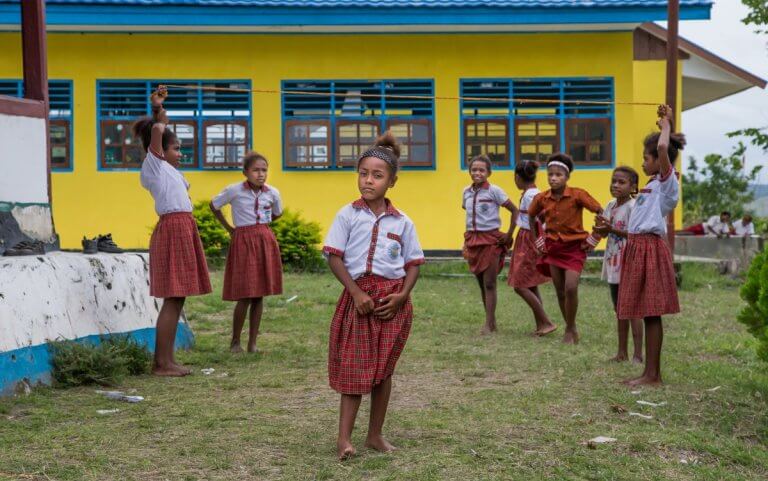
Indonesia’s children and young people are not being delivered quality education because of the prevailing dominance of political, corporate and bureaucratic elites in post-Suharto Indonesia, a new study has argued.
A report entitled “Beyond access: Making Indonesia’s education system work” from the Sydney-based Lowy Institute analyses the shortcomings of the education system of Southeast Asia’s largest nation and economy, tracing its failures to “politics and power” rather than a lack of educational funding.
The report reads:
“Indonesia has had great success in getting children into school and keeping them there, at least until the end of the compulsory basic education period.”
“However, it has had much less success in ensuring that these children receive an education.”
Indonesia has made great strides in terms of improving its education system during the Reformasi era of democratisation since 1998.
In 2002, newly democratic Indonesia inserted into its constitution a requirement that governments at all levels to dedicate at least 20 percent of their budgets to education. This was a major improvement from the authoritarian era, when by 1995 education spending counted for less than 1 percent of GDP.
According to Unesco, Indonesia’s literacy rate is now high at around 95 percent. Its youth literacy rate is even more impressive at 99.67 percent.
Nevertheless, other educational indicators illustrate a bleaker picture.

Students at Guegajah Elementary School in Aceh Besar, Indonesia. Source: AP Photo/Eugene Hoshiko
The Programme for International Student Assessment (PISA) tests last conducted by the OECD in 2015 showed that Indonesian students were performing at lower levels in all areas – science, mathematics and reading – than the OECD average.
A shocking 42 percent of Indonesian students were failing to meet minimum standards in all three areas covered by the test – being outperformed by students in neighbouring Malaysia, Vietnam and Thailand.
“While education spending is now at a level similar to other lower middle-income countries, it is still less than comparable neighbouring countries,” noted the Lowy Institute’s report.
“The country’s education system has been a high-volume, low-quality enterprise that has fallen well short of the ‘internationally competitive’ system Education and Culture Ministry plans anticipate will emerge in the near future.”

Elementary school students salute at an event for Indonesian Independence Day in Jakarta, Indonesia on August 17, 2014. Source: Dani Daniar / Shutterstock
Its schools and universities remain plagued by corruption, poor quality teaching and staff absenteeism.
“The quality of research and teaching in Indonesia’s higher education system — even at the country’s best institutions — is generally regarded as poor relative to both global standards and those of neighbouring countries in Asia,” added the report.
For example, the country’s highest ranked tertiary institution, the University of Indonesia, was listed at 277 in the QS World University Rankings 2018. Only one in ten of those in the country’s academic labour force has a PhD.
There is little incentive for old elites to drastically overhaul the education system, argued the Lowy Institute, who would rather exploit it to “accumulate resources, distribute patronage, mobilise political support, and exercise political control.”
https://twitter.com/worlduniranking/status/968839403320827904
Further reflecting an enduring culture of clientelism from the Suharto era, “teacher and academic appointments have tended to be made on the basis of loyalty, friendship, and familial connections rather than merit.”
Somewhat paradoxically, greater engagement of the civil society sector and groups representing parents, students and teachers in education policymaking during the democratisation era has also made reform more difficult, argued the Lowy Institute.
Improving the education system in Indonesia is thus not only about increasing resources and teacher training, but requires a “fundamental shift in the underlying political and social relationships that have characterised Indonesia’s political economy and shaped the evolution of its education system”, it said.
Until then, the country’s students will continue to suffer at the hands of politics and power.
This article originally appeared on our sister website Asian Correspondent
Liked this? Then you’ll love…
International universities soon able to open campuses in Indonesia
Leiden University now hosts world’s largest Indonesian collection







